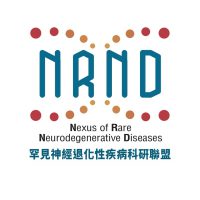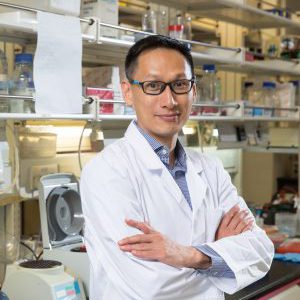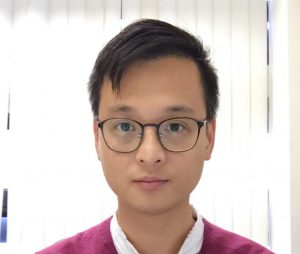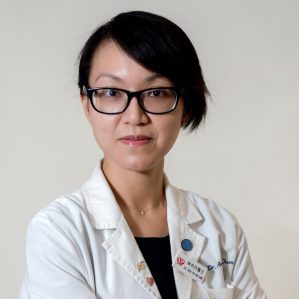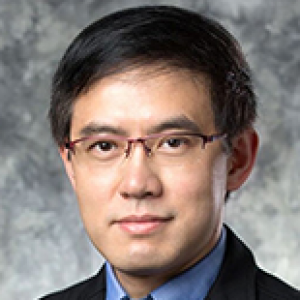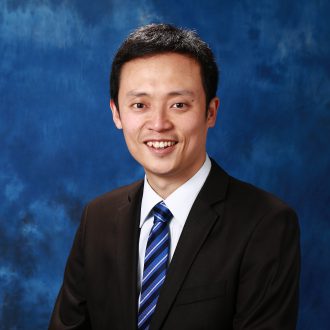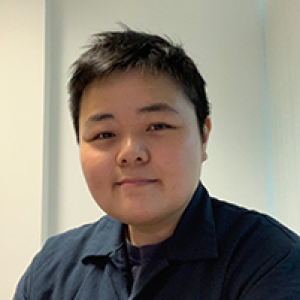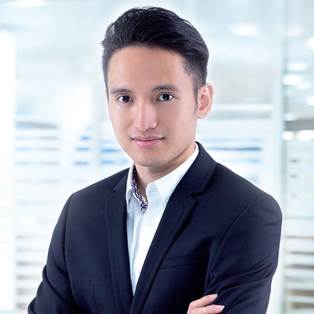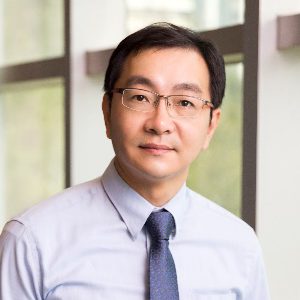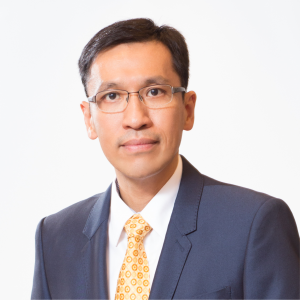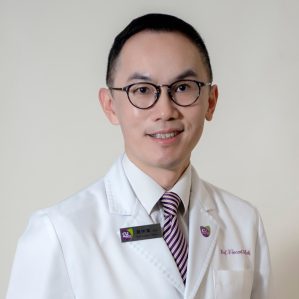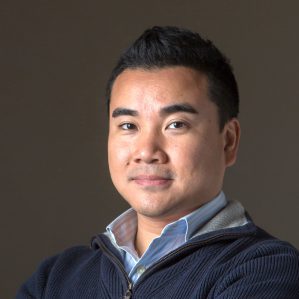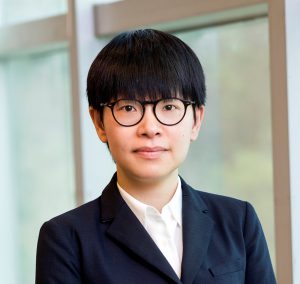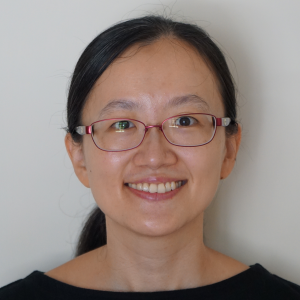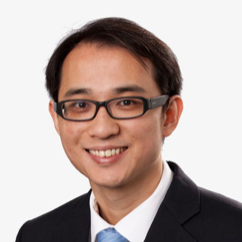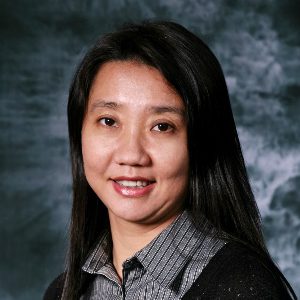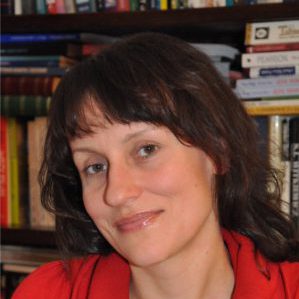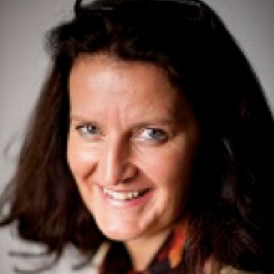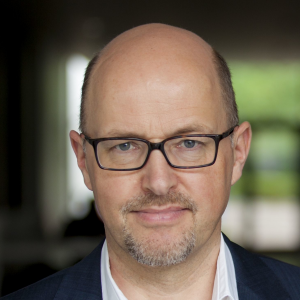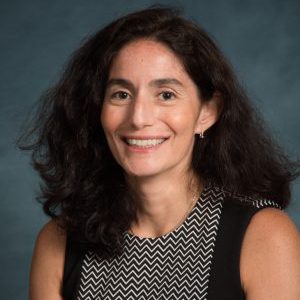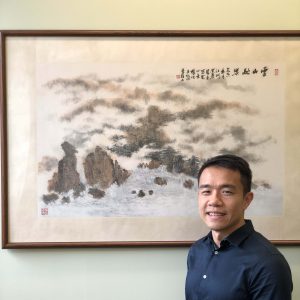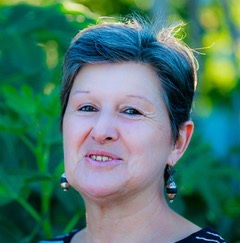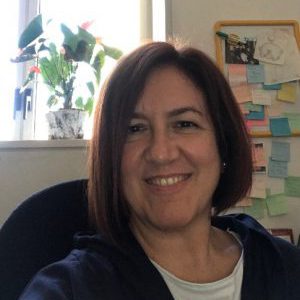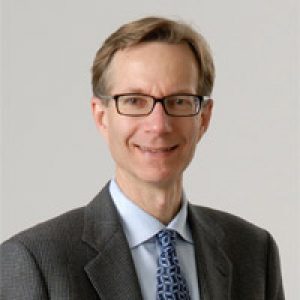Our Team
NRND gathers some of the brightest minds in rare diseases research across different disciplines and different continents; all of our founders have acquired extensive research experience and have been leading their own research teams, not to mention their scientific excellence that has been recognized by the international community and authoritative journals. The goal of NRND is to create a platform to facilitate academic exchange and foster collaboration. By leveraging the potential of synergy, NRND hopes to rise above the challenge of understanding rare diseases.
Local Members
Prof. H.Y. Edwin CHAN
— School of Life Sciences, The Chinese University of Hong Kong, HKSAR, China
Professor H.Y. Edwin Chan, Founder of NRND, is a professor in the School of Life Sciences at The Chinese University of Hong Kong. He obtained his doctoral degree from the University of Cambridge. His main areas of interest are human disease modelling, cellular, genetic and biochemical analyses of RNA and protein toxicity in neurological diseases, and the therapeutic intervention of neurological diseases. He is also the director of the Laboratory of Drosophila Research and the Deputy Director of Natural Sciences Programme in the Science Faculty.
Prof. H.Y. AU-YEUNG
— Department of Chemistry, The University of Hong Kong, HKSAR, China
Professor Au-Yeung, member of NRND, is an assistant professor at the Department of Chemistry at the University of Hong Kong. He obtained his doctoral degree from the University of Cambridge. One research direction of his research group is the chemical synthesis of novel molecular systems for recognition, binding and sensing of biologically important species. Professor Au-Yeung was awarded the Graeme Hanson Early Career Researcher Award in 2016 for his work on bioinorganic chemistry and chemical sensing.
https://www.chemistry.hku.hk/staff/hoyuay/hyagroups/index.html
Prof. Anne Y. Y. CHAN
— Department of Medicine and Therapeutics, The Chinese University of Hong Kong/ Prince of Wales Hospital, HKSAR, China
Dr. Chan, member of NRND, is a clinical associate professor (Honorary) in the Division of Neurology of the Department of Medicine & Therapeutics at The Chinese University of Hong Kong. She is leading the Parkinson’s Disease and Movement Disorder Unit in the division. At the Prince of Wales hospital, which is the teaching hospital of the Faculty of Medicine, Dr Chan works as an associate consultant at the Department of Medicine & Therapeutics.
Prof. T.F. CHAN
— School of Life Sciences, The Chinese University of Hong Kong, HKSAR, China
Professor Chan, member of NRND, is an associate professor at the School of Life Sciences at The Chinese University of Hong Kong. He earned his doctoral degree at the Washington University School of Medicine. Professor Chan’s research interests are RNomics and bioinformatics in biological processes and diseases, as well as technology and algorithm development for genomics and transcriptomics. Due to his cross-disciplinary background, he is affiliated with many research units, including the Hong Kong Bioinformatics Centre as the Co-director.
Prof. Jonathan CHOI
— Department of Biomedical Engineering, The Chinese University of Hong Kong, HKSAR, China
Professor Choi, member of NRND, is an associate professor of the Department of Biomedical Engineering at The Chinese University of Hong Kong. He obtained his doctoral degree from the California Institute of Technology. Professor Choi’s research interest lies mainly in drug delivery, nanomedicine, “bio-nano” interactions, bio-inspired nanomaterials and biological imaging. He also serves as the Assistant Dean (Student Affairs) of the Faculty of Engineering.
Prof. H.M. Kim CHOW
— School of Life Sciences, The Chinese University of Hong Kong, HKSAR, China
Professor Chow, member of NRND, is an assistant professor in the School of Life Sciences at The Chinese University of Hong Kong. She obtained her doctoral degree at the University of Hong Kong. Her main research interests are metabolic plasticity and neurodegenerative disorders, mitochondrial bioenergetics aging and cellular senescence. Professor Chow is a council member of the Society for Neuroscience and World Economic Forum, Global Future Council (GFC).
Prof. Owen H. KO
— Department of Medicine and Therapeutics & School of Biomedical Sciences, The Chinese University of Hong Kong/ Prince of Wales Hospital, HKSAR, China
Professor Ko, member of NRND, is an assistant professor at the Department of Medicine and Therapeutics & School of Biomedical Sciences at The Chinese University of Hong Kong. He obtained his PhD in neuroscience under the supervision of Professor Thomas Mrsic-Flogel at University College London in the United Kingdom. His research focuses on the principles by which neural circuits mediate sensory perception and behavior, and neurovascular and glial cell dysfunction in neurological diseases. In addition, Dr. Ko serves as a principal investigator at the Gerald Choa Neuroscience Center and the Li Ka Shing Institute of Health Sciences of The CUHK.
Prof. K.M. KWAN
— School of Life Sciences, The Chinese University of Hong Kong, HKSAR, China
Professor Kwan, member of NRND, is an associate professor in the School of Life Sciences at The Chinese University of Hong Kong. He obtained his doctoral degree from the University of Hong Kong. His main areas of interest are the genetic manipulation by transgenic and gene knockout technology, the study of Organogenesis and Tumorigensis, as well as neural development, neuronal cell biology and stem cell research. He is also now serving as Associate Dean (Education) of Faculty of Science in CUHK.
Prof. K. F. LAU
— School of Life Sciences, The Chinese University of Hong Kong, HKSAR, China
Professor Lau, a member of NRND, is an associate professor in the School of Life Sciences at The Chinese University of Hong Kong. He obtained his doctoral degree from The Chinese University of Hong Kong. Prof. Lau’s research focuses on the mechanisms that induce aberrant processing of Alzheimer’s disease amyloid precursor protein (APP), a pathogenic event in the disease. His group has found several APP interacting proteins that alter APP processing. In addition, Prof. Lau is also interested in neurite development and strategies that stimulate neurite outgrowth.
Prof. Vincent C.T. MOK
— Faculty of Medicine, The Chinese University of Hong Kong, HKSAR, China
Professor Mok, member of NRND, is the Mok Hing Yiu Professor of Medicine, Assistant Dean (Admissions) at the Faculty of Medicine at The Chinese University of Hong Kong, where he also obtained his Medical doctoral degree. Professor Mok’s research aims to understand mechanisms of dementia and to investigate strategies that may help to prevent dementia and cerebrovascular disease. Moreover, he also specializes in Parkinson’s disease and he was one of the pioneers in Deep Brain Stimulation for Parkinson’s disease in the region. Professor Mok serves as the Head of the Division of Neurology.
Prof. Jacky NGO
— School of Life Sciences, The Chinese University of Hong Kong, HKSAR, China
Professor Ngo, member of NRND, is an associate professor in the School of Life Sciences at The Chinese University of Hong Kong. He obtained his doctoral degree from the University of California San Diego. He is interested in determining the structure, function and mechanism of proteins that are involved in the regulation of pre-mRNA splicing using a multidisciplinary approach, as well as the development of inhibitors for molecular targets in cancers and neurodegenerative diseases, and elucidating the structures and mechanisms of the inhibitors.
Prof. Faye TSANG
— School of Life Sciences, The Chinese University of Hong Kong, HKSAR, China
Professor Tsang, member of NRND, is an associate professor in the School of Life Sciences at The Chinese University of Hong Kong. She obtained her doctoral degree from The Chinese University of Hong Kong. Professor Tsang is interested in embryonic stem cells and their cardiac derivatives, ion channels and cardiovascular physiology, adult stem cells and cancer stem cells. She also holds the position of Investigator in the State Key Laboratory in Agrobiotechnology and the Ministry of Education (MOE) Key Laboratories for Regenerative Medicine.
Prof. Yi WANG
— Department of Phyiscs, The Chinese University of Hong Kong, HKSAR, China
Professor Wang, member of NRND, is an associate professor at the Department of Physics at The Chinese University of Hong Kong. She earned her doctoral degree from the University of Illinois at Urbana-Champaign. Her research focus lies in computational biophysics, more specifically the molecular dynamics simulations of membrane systems, selectivity of antimicrobial peptides and receptor-ligand binding affinity calculation.
Prof. Jack Wing-tak WONG
— School of Life Sciences, The Chinese University of Hong Kong, HKSAR, China
Professor Wong, member of NRND, is an assistant professor in the School of Life Sciences at The Chinese University of Hong Kong. He obtained his doctoral degree from The Chinese University of Hong Kong. Professor Wong’s main areas of interest are vascular and metabolic biology, stem cell biology and cardiovascular regeneration. He is also active in the publishing field as a member of the editorial board of multiple journals, such as Clinical and Experimental Pharmacology and Physiology, Annals of Vascular Medicine and Research, Vascular Medicine, Dataset Papers in Medicine and World Journal of Pharmacology.
Prof. Joan ZUO
— School of Pharmacy, The Chinese University of Hong Kong, HKSAR, China
Professor Zuo, member of NRND, is the Director and Professor of the School of Pharmacy at The Chinese University of Hong Kong. Professor Zuo’s research focuses on biopharmaceutics, pharmacokinetics, and drug delivery technology, particularly that of herbal medicine, as well as herb-drug interactions investigations. Prof. Zuo has served as nomination committee member for International Society of Xenobiotics (ISSX) and is regional editor of “European Journal of Pharmaceutical Sciences” and editorial board member for “Biopharmaceutics and Drug Dispositions” & “Xenobiotics”.
http://www.pharmacy.cuhk.edu.hk/1/about-us/academic-staff/joanzuo/
Overseas Members
Prof. Agnieszka CHARZEWSKA
— Insititute of Mother and Child,Poland
Professor Charzewska, member of NRND, is an associate professor in the Department of Medical Genetics of the Institute of Mother and Child in Poland. She obtained her doctoral degree at the Faculty of Biology in Maria Curie-Skłodowska University in Lublin, Poland. Professor Charzewska’s research interests are neurogenetics and molecular background of human inherited diseases, especially early and late onset neurological diseases; next generation sequencing and molecular modeling.
Prof. Geneviève GOURDON
— Institute of Myology, France
Professor Geneviève GOURDON, member of NRND, is a researcher at the Pitié-Salpêtrière Hospital, the Institute of Myology in France. She directs a group of ten scientists studying the genetic cause of myotonic dystrophy for the French National Institute for Research Medicine. Using the transgenic mouse models that she developed in the 1990s, Professor Gourdon and her team study the mechanisms responsible for the CTG repeat expansion that causes myotonic dystrophy, as well as its effects and the possible ways of interfering with the damage especially in brain. In addition, Professor Gourdon is also interested in such mechanisms involved in the congenital form of the disease.
Prof. Knud J JENSEN
— University of Copenhagen, Denmark
Professor Jensen, member of NRND, is a professor at the Department of Chemistry at the University of Copenhagen, where he obtained his doctoral degree. His research interests lie mainly in the self-assembly of peptides, small proteins, and peptide-oligonucleotide conjugates at the nanoscale, as well as peptide medicinal chemistry, chemoselective carbohydrate chemistry and chemical glycobiology. Professor Jensen is a member of the editorial board of ChemBioChem, ChemistrySelect and Journal of Peptide Science.
Prof. Eileen KENNEDY
— College of Pharmacy, University of Georgia, USA
Professor Kennedy, member of NRND, is an associate professor in the College of Pharmacy in the University of Georgia. She earned her doctoral degree from the University of California, San Diego. Her research currently focuses on developing novel chemical biology strategies to synthetically disrupt protein:protein interactions (PPIs) using chemically stabilized peptides.
Prof. Sheng-han KUO
— Columbia University Medical Center, USA
Professor Kuo, member of NRND, is an assistant professor and principle investigator in the Department of Neurology, Division of Movement Disorders, at the University of Columbia. His primary clinical interest is ataxia, including hereditary ataxias, neurodegenerative ataxias, and acquired causes of ataxia. He is also the director for the Initiative for Columbia Ataxia and Tremor and one of the tri-leaders for the Clinical Research Consortium for Spinocerebellar Ataxias.
Prof. Florence MASCHAT
— University of Montpellier, France
Professor Maschat, member of NRND, is a professor at the Molecular Mechanisms of Neurodegenerative Diseases (MMDN) unit at the University of Montpellier. She obtained her doctoral degree at the University of Paris. Professor Maschat’s research team focuses on Huntington’s disease by studying neurophysiopathology in drosophila and mice. Since 2000, Professor Maschat works as the Research Director of the French National Centre for Scientific Research.
Prof. Maria Elena REGONES
— University of Milano-Bicocca, Italy
Professor Regonesi, member of NRND, is an assistant professor at the Department of Biotechnology and Bioscience at the University of Milano-Bicocca, where she obtained her doctoral degree. Her main areas of interest are mechanisms governing stability, turnover and processing of bacterial mRNA. She is also interested in investigating the mechanisms of aggregation and toxicity of proteins responsible for neurodegenerative diseases. She is a member of the Milan Center for Neuroscience and of the Bicocca Center of Science and Technology for Food.
Prof. Steven C. ZIMMERMAN
— University of Illinois Urbana-Champaign, USA
Professor Zimmerman, member of NRND, is a professor in the Department of Chemistry at the University of Illinois Urbana-Champaign. He obtained his doctoral degree from the Columbia University. Professor Zimmerman and his research team are interested in bio-organic chemistry, synthetic chemistry, dendrimers as drugs and drug delivery systems, as well as the design, synthesis, and evaluation of small molecules and polymers as drugs, drug and cell delivery agents, and imaging agents etc. He is also a professor of Biophysics and Computational Biology.
Non-academic Collaborators

— Codex Genetics
Founded in 2013 and with the prime focus on managing genetic diseases, Codex aims to provide holistic, clinically-actionable disease management solutions to patients suffering from neurological disorders or cancers, through AI-powered analytics on both genetic and clinical data. Three products form the pillar of Codex’s services: CoGenesis™ – Drug Response Test, CoGenesis™ Neuro – Genetic Screening Test, and CoGenesis™ Cancer – molecular profiling of tumors.
— Hong Kong Alliance for Rare Disease (HKARD)
Established in December 2014, the Hong Kong Alliance for Rare Diseases (HKARD) is the first patients’ group in Hong Kong comprising cross-rare-disease patients and their families with the support of experts and academics in the field. Its objectives are to rally supporters to spearhead and improve related policies and services, promote public education on rare diseases, and strengthen the community’s support for patients in order to ensure respect and protection for patients in terms of such fundamental rights as healthcare, social support, education, and daily needs equal to other citizens.
— Hong Kong Spinocerebellar Ataxia Association (HKSCAA)
Founded in 2007, HKSCAA is a non-profit, self-help organization. The organisation encourages patients with spinocerebellar ataxia (SCA) and their families to play the spirit of self-help and mutual assistance, and therefore improve quality of life of the patients. The HKSCAA organizes various types of activities; not only to provide social, emotional and educational supports to the SCAs and their caregivers, but also to pay attention to the government policies, and care for patients’ rights. At the same time, the organization disseminates knowledge of the disease to the general public and raises awareness of the need for research of the disease.
